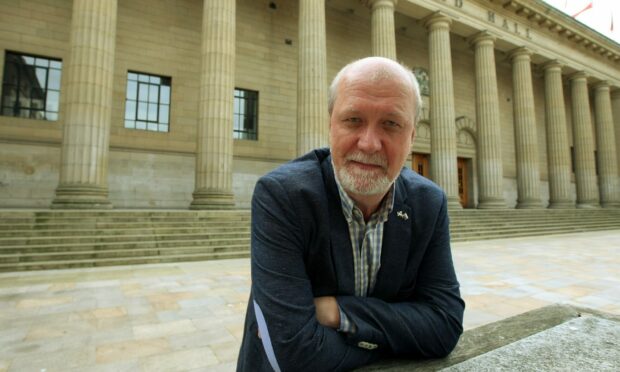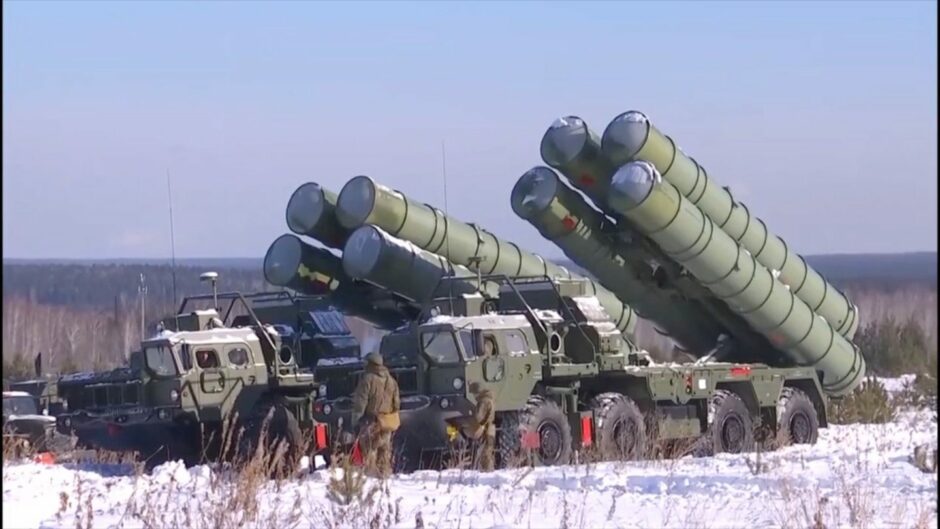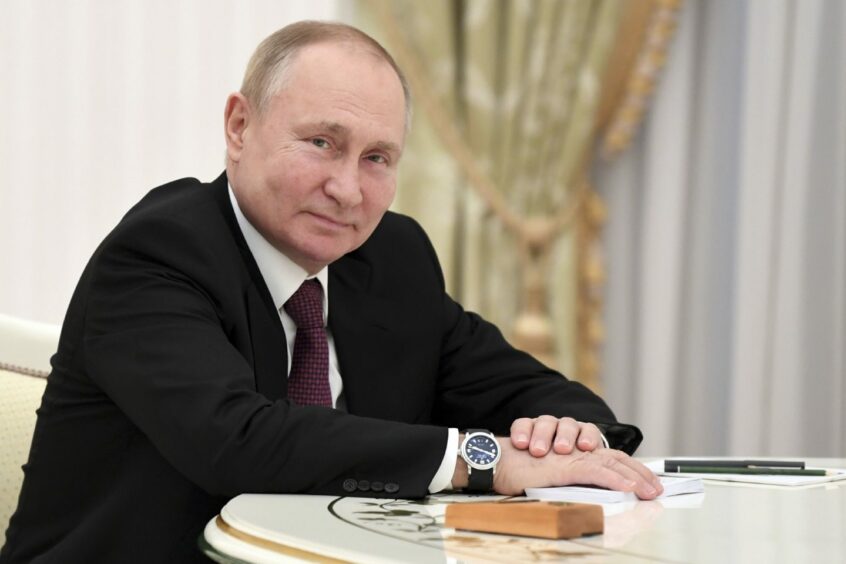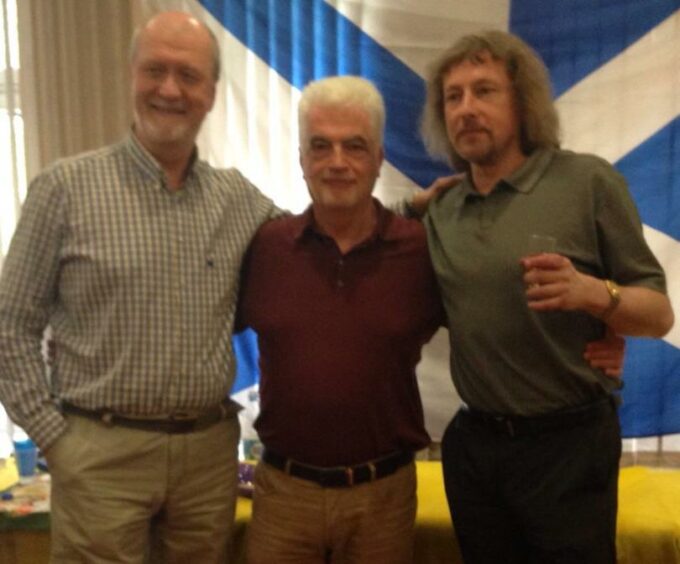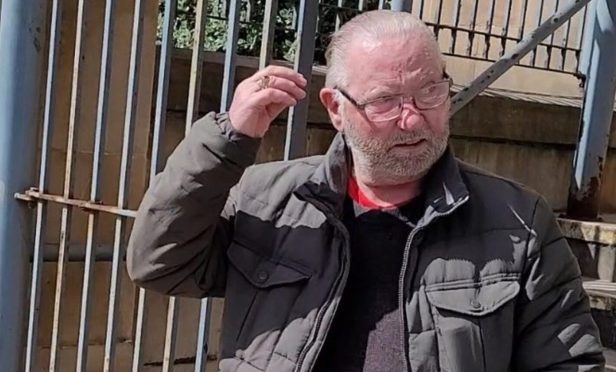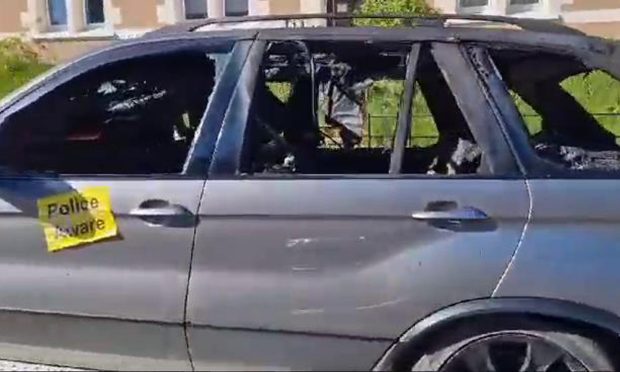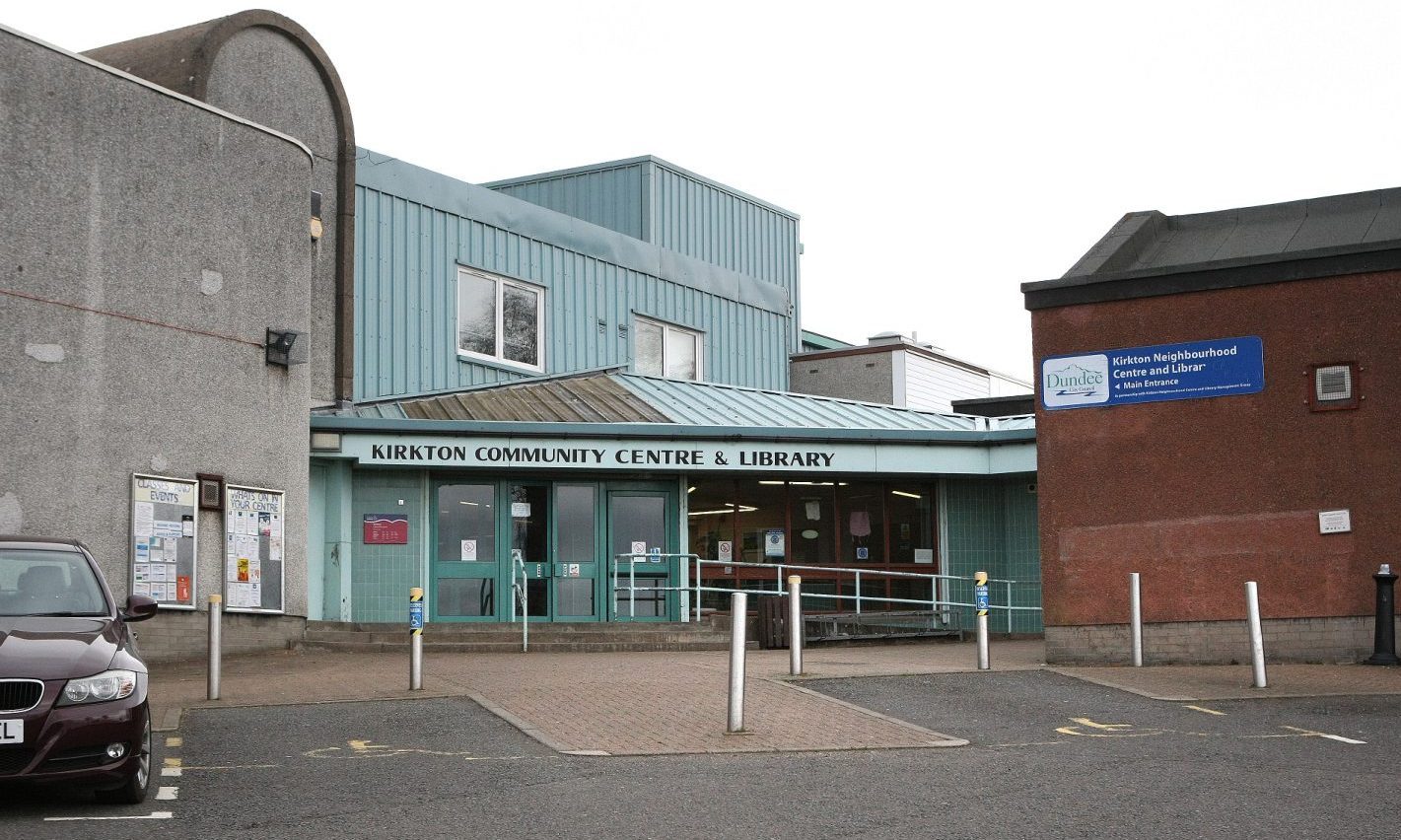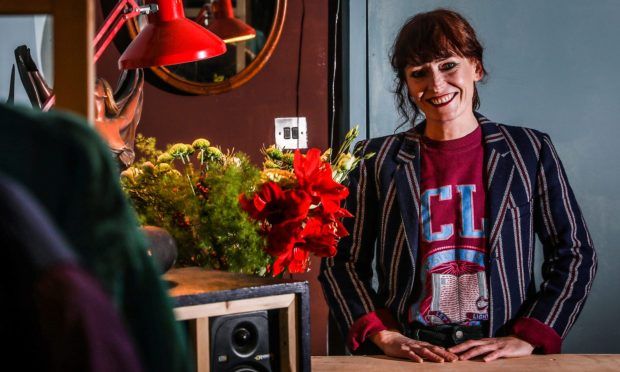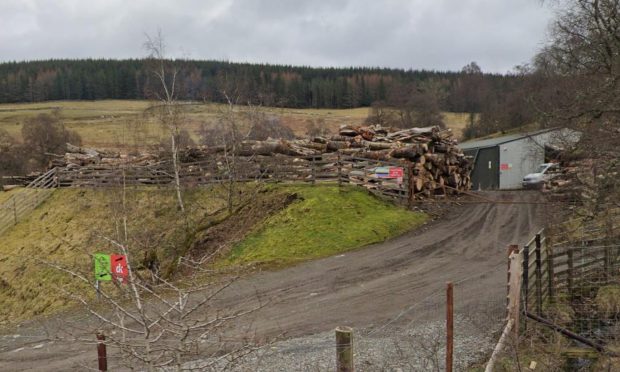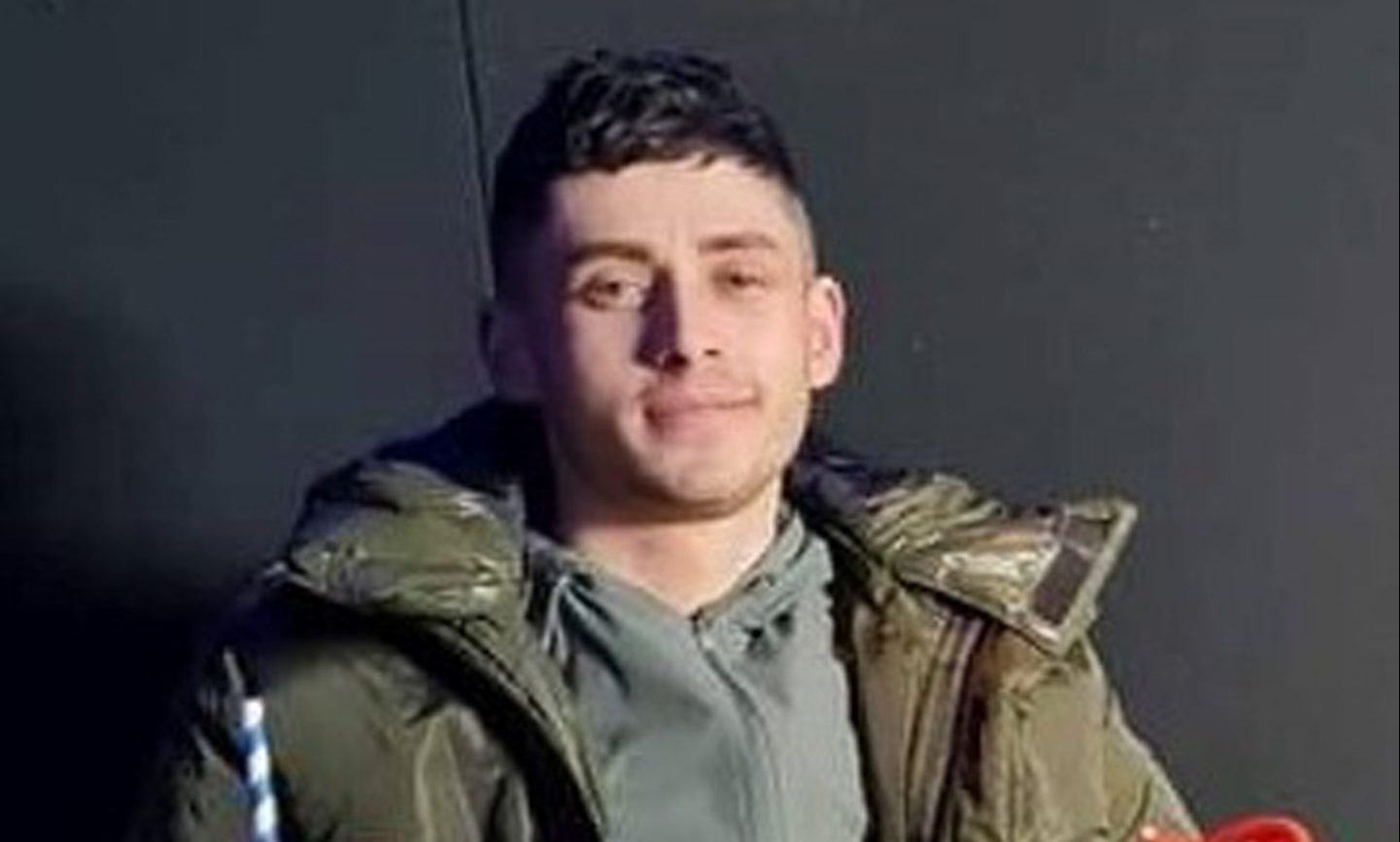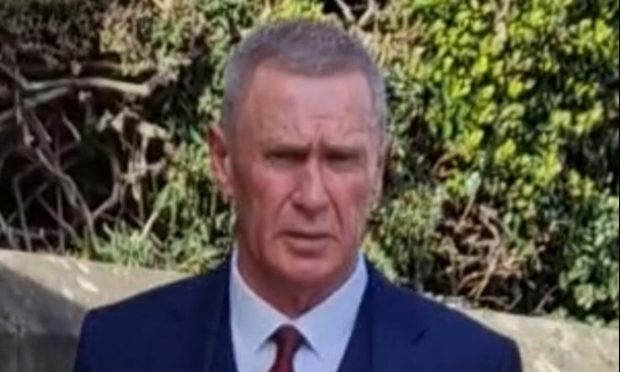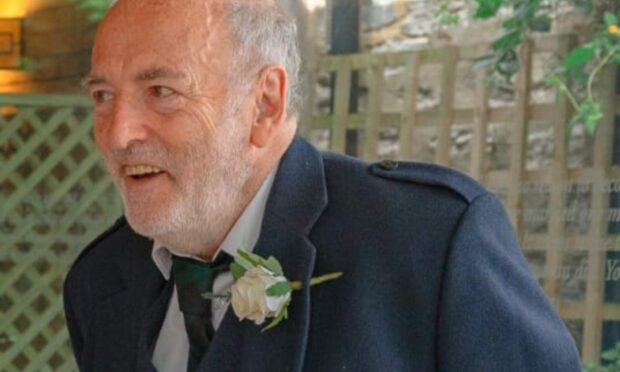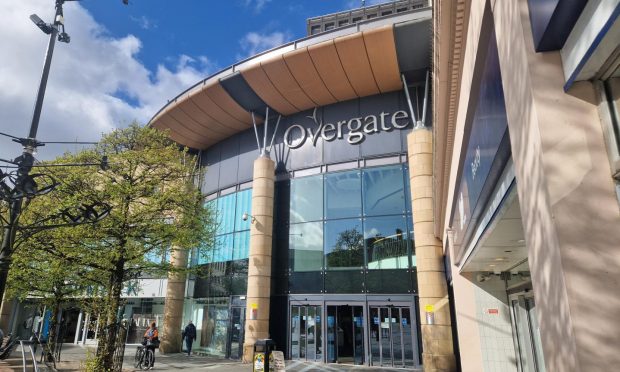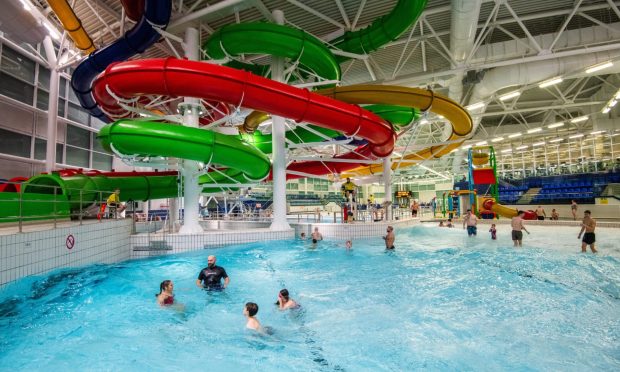For 28 years, former Soviet Army soldier Vitaly Mironov has been promoting peaceful relations between Russia and ‘the West’.
The 60-year-old president of the Moscow Caledonian Club helped found the non-profit Russo-Scots organisation in 1994 after studying history at Moscow University.
The father-of-three, who’s married to a former Russian ballerina, has been using the remarkable 300-year-old links between Scotland and Russia to develop renewed social, cultural and economic bonds between the two countries, including Dundee.
However, as tensions continue between Russia and the West over Ukraine, Vitaly has accused western “elites” of “failing to understand and not wanting to understand” Russia.
He has warned that peace is impossible without “understanding and respect” for each other.
And he has defended Russia’s right to protect her interests.
‘Arrogance of elites’
In an exclusive interview with The Courier from Moscow, Vitaly says: “One can endlessly argue and talk about this problem and about the current dangerous situation.
“The question is – do we want to understand each other?
“Or is this dispute just a game, a cover for the realization of our own, specific goals?
“This is where the main problem between the West and Russia lies.
“In my deep conviction, the deep essence of this problem lies in the un-wanting of the West to understand Russia, unwilling to even try to do it.
“In this case, I’m not talking about the ordinary people of the US and Great Britain but about the elites of these countries.
“This arrogance of the Western elites towards other peoples and countries, including Russia, is a kind of post-colonial syndrome that still weighs on the minds of the ruling circles in your countries for the past half century.”
Western sanctions
Britain – like other western powers – is coming to Ukraine’s aid. It’s threatening economic sanctions against Russia if it invades. It’s providing Ukraine with anti-tank weapons and armoured vehicles.
It’s promising to deploy British forces to eastern European members of the Nato military alliance if Russian troops cross Ukraine’s borders.
Russia has never been far from western media headlines in recent years whether it’s been Crimea, the Salisbury poisonings, Russia’s role in Syrian air strikes or the doping of Russian athletics ahead of the Rio Olympics.
Add to that the complicated prism of Second World War and Cold War history, and the increasingly authoritarian Kremlin-based Putin regime is often portrayed as an expansionist and unpredictable war-monger which cannot be trusted.
But Vitaly worries about the “propaganda on both sides” which gives a distorted view.
He believes that in the last three decades following the collapse of the USSR, the West has had “every reason and opportunity” to build friendly and even allied relations with Russia.
Nothing prevented this, he says, and Russia itself was open for “good neighbourliness”.
The West only needed to respect Russia, its national interests and aspirations.
But instead, believing that only they can have such interests, the Western elites continued the policy of “infringing” on Russia, he claims.
This manifested itself in the support of anti-Russian forces in the former Soviet republics of Lithuania, Latvia, Estonia, Georgia, he says, in the support of Islamic radicals in Chechnya, nationalists in Ukraine, and most importantly, the encirclement of Russia with dozens of new military bases.
The infrastructure of the NATO bloc reached the Russian border long before 2014, when the events in Ukraine began, Vitaly adds.
He recalls that back in 2007, Vladimir Putin, in his speech at a security conference in Munich, warned the West about the danger of such politics.
However, “no one listened to him”.
Moreover, the West continued to accept more and more countries into the NATO bloc and move it to the borders of Russia.
“To our questions why are you doing this?,” says Vitaly,” Western leaders answered us hypocritically – NATO is not an aggressive bloc. Really? Tell this to the people of Iraq, Libya, Serbia, Afghanistan, Syria.
“In general, it is not surprising that all these steps of the West caused understandable anxiety and a sense of growing danger among the Russian people and the leadership of Russia.
“And here I return to my main message – the West does not understand and does not want to understand Russia.”
Understanding the Russian psyche
Vitaly says that to understand the Russian peoples’ psyche, a number of points have to be considered.
Firstly, he describes Russia as an “absolutely self-sufficient nation”.
Secondly, the Russians have their own way of life to which they are accustomed, based on traditional values.
Thirdly, Russia has been subjected to aggression and attacks over the centuries, which remain raw.
“Throughout its history, the Russian people more often had to defend their freedom and independence with weapons in their hands than to indulge in the blessings of a peaceful life,” he says.
“Moreover, at least once in every century these were not just wars, but foreign invasions, when the question of the very existence of Russia was being decided.”
Great Patriotic War
Vitaly talks specifically about the impact of the Second World War, or, as it is called in his country, the Great Patriotic War.
“You cannot even imagine what this war meant for my people, for all Russians,” he says.
“I do not reproach you and people in the West, but you all really cannot imagine what it means to lose 27 million of your people!
“We know and feel. This is an everyday pain that, once entering your flesh and blood, into your consciousness, does not let you go all your life.
“An example is just my family. From childhood, every summer I came with my parents to rest in the village where my father was from.
“This village is located 300 kilometres from Moscow, in the Ryazan region and is called Tyrnovo.
“In the centre of the village there is a monument to the inhabitants who died in the Great Patriotic War.
“On the monument is a plaque with the listed names of the dead fellow villagers. I once counted them – 422 people.
“Before the war, about 170 families lived in the village, almost 1,000 people.
“This means that each family has lost at least two of their men.
“And this also means that almost all adult men who left to defend their homeland died in the war.
“Only a few returned. One of my family, from the side of my grandparents, lost seven people.
“And my grandfather was the only one who returned from the war out of eight people. And so it is throughout Russia.
“Now try to imagine this horror for yourself, try it on yourself and try to understand the feelings and thoughts that every Russian person experiences… especially when he realizes that his homeland can again experience something similar?”
Shaping Russian character
Vitaly sums up his thoughts by asking for consideration of what impact these events have had on the national mentality of the Russian people.
The awareness of an external threat has shaped in the Russian national character the “absolute priority” of their country’s security interests over any other feelings.
Awareness of this is “key” to understanding the needs and aspirations of the Russian people in the current situation.
“Under no circumstances will we ever again allow our neighbours to pose a threat to the security of our homeland,” he says.
“Please understand yourself and tell others – now it’s not about Ukraine, it’s about preventing the use of anyone’s territory to threaten Russia.
“The only thing that Russia requires is to give it a written security guarantee. And that’s all. Isn’t that fair?
“Especially noteworthy is the fact that a rocket’s flight time to Moscow is seven minutes if it is fired from Ukraine, and to St Petersburg – five minutes if it is fired from Estonia. Isn’t our demand, therefore, to remove Nato military bases from our borders justified?
“By the way, there is not one Russian military base near the UK or near the USA.
“Give us these guarantees, subscribe to them, and the issue is resolved!
“It’s simple. Let’s live in peace and friendship! And if your governments do not give us such guarantees, then it means they pursue other goals in relation to Russia – not peaceful goals!
“Consider that this heavy sense of national security is our Russian complex. But, we Russians, like no other people in the world, have the right to such a complex!
“Just understand us and we can go forward together.”
High stakes
Vitaly hopes for the “prudence of all people of good will on both sides of the conflict”.
“The stakes are raised very high,” he adds. “I’m sure there won’t be a big war.
“But even a small military conflict can separate our peoples even further from each other.
“It will not bring anything good, first of all to ordinary people.
“Therefore, I have always urged and urge now – let’s understand each other! Peace is impossible without understanding and respect for each other.”
From Russia with love – remarkable tales of east coast Scots’ ties with Moscow
